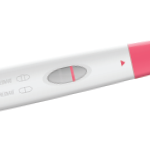NEW YORK (Reuters Health)—New European League Against Rheumatism/American College of Rheumatology (EULAR/ACR) classification criteria can be used to identify patients with systemic lupus erythematosus (SLE) in an unselected group of patients hospitalized for pericardial effusion, new findings show.1 “Overall, in patients with pericardial effusion and positive ANA, the diagnosis of SLE could be ruled out…

Baby on Board: The Rheumatologist’s Role in Family Planning for Patients with Lupus
For patients with lupus, family planning discussions are vital to achieving positive pregnancy outcomes & maintaining overall health…

Renal Transplant Outcomes in Patients with Lupus Nephritis
A recent study from Brazil suggests lupus nephritis patients who receive renal transplant have a high five-year survival rate. Researchers found the presence of venous thrombosis and antiphospholipid syndrome, but not viral infection, were important predictors of renal graft loss in these patients…
Atmospheric & Environmental Changes Tied to Organ-Specific Lupus Flares
NEW YORK (Reuters Health)—Changes in atmospheric and environmental factors may contribute to organ-specific disease exacerbation in patients with systemic lupus erythematosus (SLE), according to a new study. The study found “strong associations between atmospheric variables and fine particulate matter concentration over the 10 days prior to a patient visit and organ-specific lupus flares at the…

2019 EULAR/ACR SLE Classification Criteria Offer Improved Sensitivity & Specificity
The new EULAR/ACR classification criteria for SLE offer improved sensitivity and specificity, as well as more accurately reflect the current tests used to clinically diagnose SLE. A positive ANA test is obligatory…

Study Says Mothers’ Cardiovascular Health Is Linked to Pregnancy Outcomes in Lupus
A recent study in The Journal of Rheumatology sheds light on the importance of preconceptional cardiovascular health in women with systemic lupus erythematosus. Although many questions remain, improved cardiovascular health measures seem to positively affect pregnancy outcomes, suggesting a potential role for preconception cardiovascular interventions.1 Women with lupus now have healthier pregnancies than in the…

Study Finds ANA-Negative Classification Errors Among Newly Diagnosed Lupus Patients
How laboratories define a serological hallmark of systemic lupus erythematous and which assays they use to detect it could contribute to misclassification of patients identified as anti-nuclear antibody (ANA) negative, according to researchers. Most people who have lupus test positive for ANAs as part of an immunology screening for autoimmune disorders. The presence of ANAs…

Lupus Flares Pose Greatest Risk for Adverse Pregnancy Outcomes in Women with SLE
According to new research, women with SLE are at the highest risk for adverse pregnancy outcomes during a lupus flare. The data may enable clinicians to use risk stratification and tailored monitoring to counsel SLE patients who are pregnant or considering pregnancy. Researchers also found that maternal age, lupus nephritis and antiphospholipid antibodies may affect pregnancy outcomes…

Lupus Treatments: Into the Future
As the 21st century unfolds, rheumatologists will most likely transition from prescribing lupus patients broad immunosuppressants to more targeted treatment approaches. But to make this happen and advance research, the challenges experienced in lupus clinical trial design must be addressed…

Study: Screen Hospitalized Lupus Patients for Venous Thromboembolism
When patients with lupus are hospitalized, they should be screened and likely treated for venous thromboembolism, researchers of a nationwide study say. In May, ACR Open Rheumatology published results of the large retrospective study spanning several years. Researchers analyzed trends in mortality, morbidity and hospitalization from venous thromboembolism (VTE), specifically among patients diagnosed with systemic…
- « Previous Page
- 1
- …
- 14
- 15
- 16
- 17
- 18
- …
- 43
- Next Page »